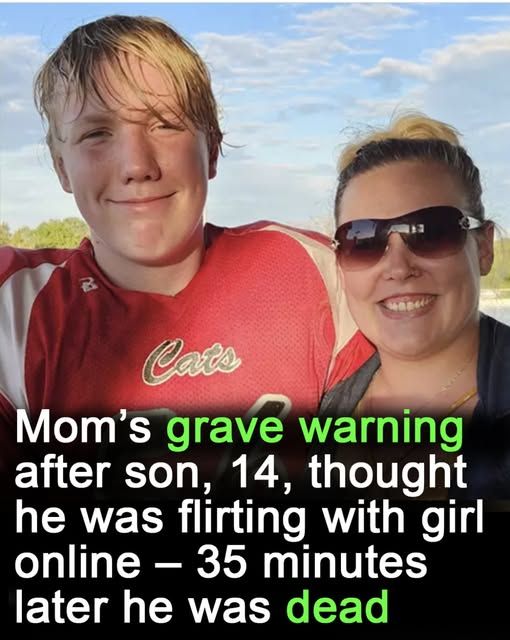A Kansas mother says her 14-year-old son took his life after a TikTok-Snapchat sextortion scheme. Police found chats; experts warn scams can escalate in minutes.
A Kansas mother is warning families after her 14-year-old son, Caleb Morgan, died by suicide following what she says was a fast-moving online “sextortion” scam.
On June 10 in El Dorado, Kansas, Caleb began chatting with someone he believed was a 14-year-old girl on TikTok, with the conversation moving to Snapchat, his mother said. According to her account, the other person sent compromising images and pressured Caleb to send pictures of himself. The tone then shifted: the person demanded money and threatened to release Caleb’s images if he didn’t pay. His mother says the messages made him feel like his life was over because of a mistake.
Caleb died at home shortly after. At first, his parents didn’t know why. When police examined his phone, they found conversations that showed how quickly the situation escalated—within about 35 minutes, his mother said. She added that Caleb had even sent a photo of a gun in a desperate attempt to stop the threats.
What is “sextortion”?
Sextortion is a form of online blackmail involving sexually explicit images. Scammers may pose as peers on social platforms, rapidly move to private messaging, and threaten to share images unless the victim pays or sends more content. In some cases, criminals start with a threat that they already have a compromising image and demand more. Experts warn these schemes can unfold in minutes and target teens’ fear and shame.
Safety tips for families
- Normalize immediate disclosure: Tell kids that if something feels wrong online, they won’t be punished for coming forward. Speed matters.
- Lock down privacy: Set social profiles to private; limit who can DM or friend-request; disable auto-saving of photos where possible.
- Verify identities: Be skeptical of unsolicited flirty messages, requests to move platforms, or pressure to send photos quickly.
- Never pay extortionists: Payment rarely ends the threats. Save evidence (screenshots, usernames, timestamps) and report.
- Report promptly: Contact local law enforcement and report accounts to the platform. In the U.S., file a tip with the FBI’s Internet Crime Complaint Center (IC3).
- Support after exposure: Remind teens that nothing online is worth their life. Encourage them to loop in a trusted adult immediately.
If you or someone you know is in crisis, in the U.S. call or text 988 (Suicide & Crisis Lifeline) or chat via 988lifeline.org. If there is immediate danger, call 911.
This story is a heartbreaking reminder that scams weaponize fear and shame. Open conversations, fast reporting, and nonjudgmental support can save lives.



